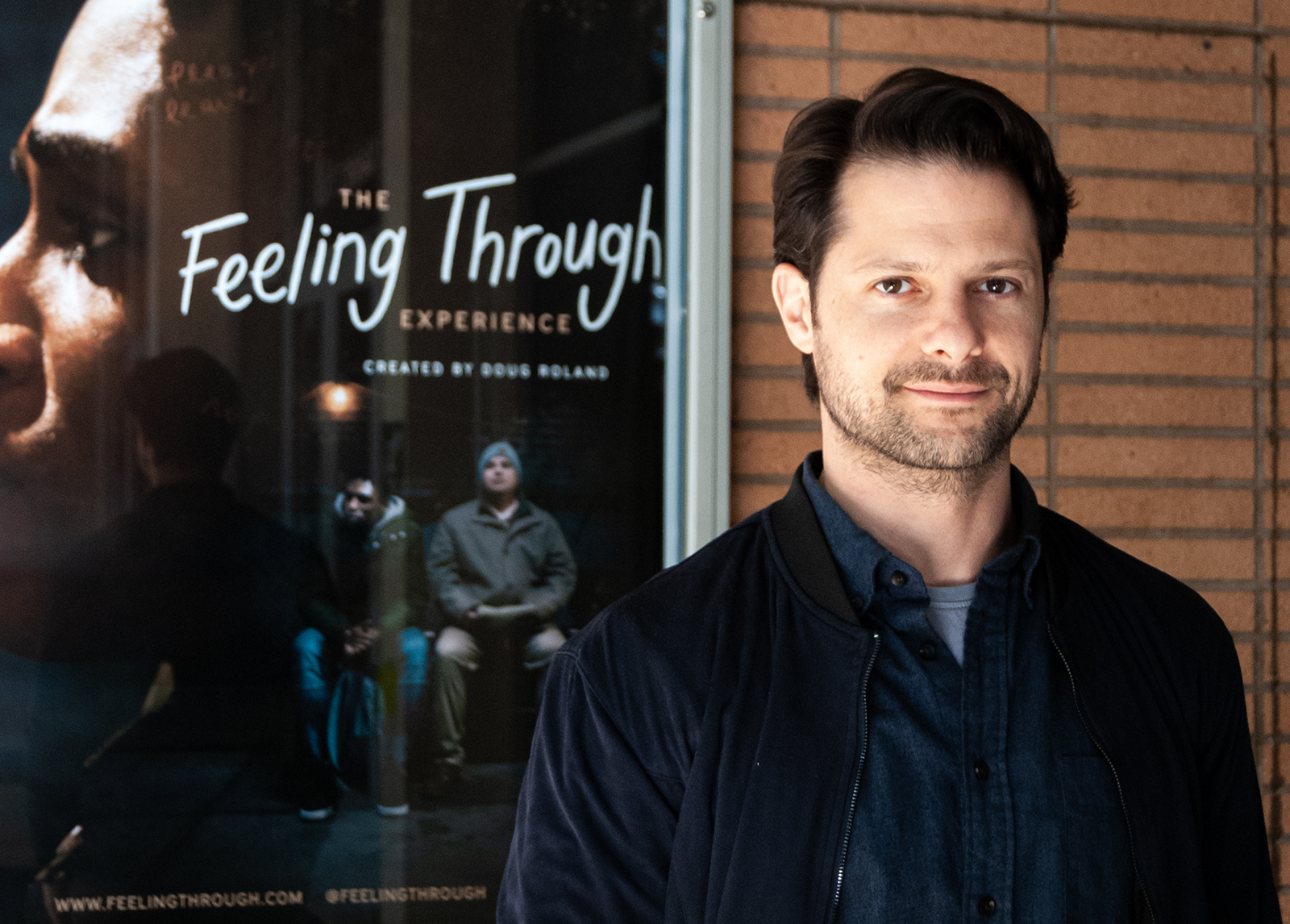Short film and documentary ensures accessible experience for deaf-blind community

Director Doug Roland’s “The Feeling Through Experience” will be screened Wednesday in the James Bridges Theater. He said that, to make the film accessible to blind and deaf communities, casting demanded an army of interpreters as many auditions took place over video chat with interpreters on both sides. (Xiomara Novo/Daily Bruin)
"’The Feeling Through Experience’ (Accessible) Screening & Panel"
Wednesday
James Bridges Theater
Prices vary
By Talia Brown
Feb. 17, 2020 11:16 p.m.
“The Feeling Through Experience” brings accessibility to the silver screen.
With the support of the Helen Keller National Center for Deaf-Blind Youths & Adults, the short film and accompanying documentary will be screened Wednesday in the James Bridges Theater. The “Feeling Through” film itself, directed by Doug Roland, will be followed by a Q&A with the director, lead actor and local members of the deaf-blind community.
Roland said that he aimed for all parts of “The Feeling Through Experience” to be made accessible for members of the deaf-blind, deaf and blind communities with audio descriptions and open captioning throughout the film and multiple on-site interpreters.
“When you’re representing a community on screen that has really never been represented before, there’s a real responsibility to that,” Roland said. “I certainly wanted to do it right, and I wanted to do it alongside and with the community and not in a vacuum.”
[Related: UCLA alumna uses green screens, CGI in short film to spotlight superficiality in dating]
Based on an encounter Roland had with a deaf-blind man eight years ago, he said the film took a village to create, given the crew that was needed to ensure accessibility. Casting, in particular, required an army of interpreters – which were coordinated by the Helen Keller National Center – as half of the auditions took place over video chat with interpreters on both sides of the screen.
However, Roland didn’t find his lead actor in the casting rooms but in the Helen Keller National Center cafeteria. He said his team suggested he screen Robert Tarango Jr. during a break in the audition schedule, proposing he might be a good fit. Roland said he immediately knew that Tarango was the right man for the role. However, Tarango, who spoke to the Daily Bruin through an interpreter, said the transition wasn’t easy, as he had to learn the craft while being deaf and low-vision rather than deaf-blind.
“It was a great experience, but it was tough,” Tarango said. “When I was in school, … I was in drama, but it was a very different experience being in a high school drama club compared to being in a film.”
Tarango’s inexperience didn’t deter Roland, as he said it was a matter of getting the untrained actor over a learning curve. Roland said he would never normally show or tell an actor how to carry out a scene, but with Tarango, it was helpful to give him an example of what a scene could look like, particularly the ones that were more intricate and action-heavy.
Once Tarango found his footing as an actor though, Roland said an entirely different concern arose after post-production as most theaters are not accessible in the way “The Feeling Through Experience” needs them to be. The screenings all have open captions and require audio descriptions for people who are blind or low vision so they can still experience the film by listening to it. Moreover, Roland also set out to find spaces that could host the necessary tactile interpreters, stage interpreters and close-vision interpreters.
[Related: Report shows better representation in Hollywood on screen but not behind the camera]
Knowing Roland’s goals, Sue Ruzenski, the executive director at the Helen Keller National Center, said she worked closely with him. It was key to ensure that there is a contact person for every event who could oversee the accessibility accommodations, she said.
“The needs, depending upon a person’s vision or hearing loss, are very tailored to that person,” Ruzenski said. “In order to make this experience accessible to everyone, you have to learn about what the theatergoer’s specific communication preferences are and then find the interpreters that have those skills.”
Ruzenski said this event became a matter of tailoring the film to the audience. For Roland, this reality is what allows “The Feeling Through Experience” to raise awareness of the deaf-blind community, pointing out how prevalent accessibility can and should be. “Feeling Through” provides media representation to the deaf-blind community, which has been virtually nonexistent until now, he said.
“We’re all about bringing the deaf-blind community together with other communities,” Roland said. “There’s nothing more powerful than … dispelling assumptions by just being in the presence of each other and connecting in that way.”


